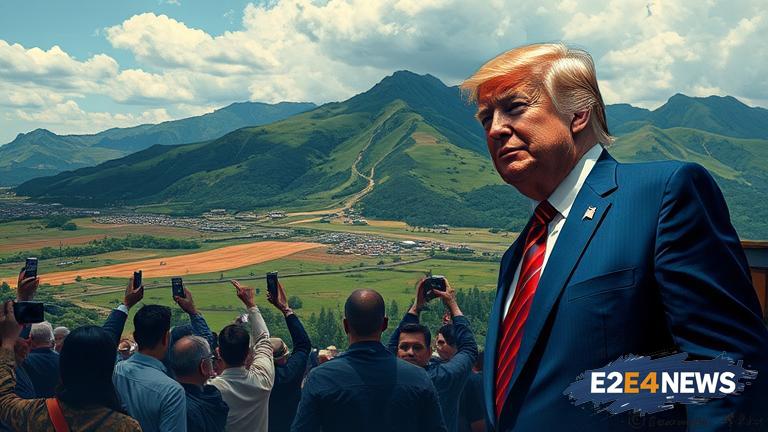The situation in Venezuela has been a subject of intense debate and discussion in recent years, with the country’s economy in shambles and its political landscape in turmoil. At the heart of this crisis is the complex and often contentious relationship between the United States, under the leadership of former President Donald Trump, and Venezuela, led by President Nicolas Maduro. The two nations have a long and complicated history, with the US often finding itself at odds with Venezuela’s socialist government. The Trump administration’s approach to Venezuela was marked by a hardline stance, with the US imposing strict sanctions on the country and its leaders. This move was seen as an attempt to pressure Maduro’s government into reform, but it has had far-reaching consequences for the Venezuelan people. The sanctions have exacerbated the country’s economic crisis, leading to widespread shortages of food, medicine, and other essential goods. The humanitarian situation in Venezuela is dire, with millions of people struggling to access basic necessities. The Trump administration’s policy towards Venezuela has been criticized by many, who argue that it has only served to strengthen Maduro’s grip on power. Despite this, the US has continued to pursue a policy of isolation and pressure, hoping to bring about regime change in the country. However, this approach has been met with resistance from other nations, including China and Russia, which have continued to support Maduro’s government. The situation in Venezuela is further complicated by the country’s rich oil reserves, which have long been a source of tension between the US and Venezuela. The US has historically been a major importer of Venezuelan oil, but the Trump administration’s sanctions have severely curtailed this trade. As a result, Venezuela has been forced to look elsewhere for markets, including China and India. The economic crisis in Venezuela has also had a profound impact on the country’s infrastructure, with many of its roads, bridges, and public buildings in a state of disrepair. The situation is particularly dire in the country’s rural areas, where access to basic services such as healthcare and education is limited. The Venezuelan government has been accused of human rights abuses, including the suppression of opposition voices and the use of violence against protesters. The international community has been vocal in its condemnation of these actions, with many calling for greater accountability and transparency from the Maduro government. Despite these challenges, there are still many who believe that a negotiated solution to the crisis is possible. This would require a willingness from all parties to engage in constructive dialogue and to seek common ground. However, this is a daunting task, given the deep-seated mistrust and animosity that exists between the US and Venezuela. The role of other nations, including the European Union and the Organization of American States, will be crucial in facilitating this process. Ultimately, the situation in Venezuela is a complex and multifaceted one, requiring a nuanced and comprehensive approach. The US and other nations must be willing to engage in diplomacy and to seek solutions that prioritize the needs and well-being of the Venezuelan people. This will require a fundamental shift in approach, one that prioritizes cooperation and dialogue over confrontation and isolation. As the situation in Venezuela continues to evolve, it is clear that a new approach is needed, one that takes into account the complexities and challenges of this turbulent landscape. The international community must come together to support the Venezuelan people and to help bring about a peaceful and sustainable resolution to the crisis. The US, in particular, must be willing to re-examine its approach to Venezuela, seeking solutions that prioritize the needs of the Venezuelan people over political ideology. Only through a concerted effort can we hope to bring about a brighter future for the people of Venezuela. The crisis in Venezuela is a stark reminder of the importance of diplomacy and international cooperation. As the world watches, it is clear that a new approach is needed, one that prioritizes the well-being and dignity of the Venezuelan people. The situation is complex, but with a willingness to engage in constructive dialogue and to seek common ground, it is possible to find a way forward. The US and other nations must be willing to put aside their differences and to work towards a solution that benefits all parties. This will require a fundamental shift in approach, one that prioritizes cooperation and mutual respect over confrontation and isolation. As we look to the future, it is clear that the situation in Venezuela will continue to be a major challenge for the international community. However, with a commitment to diplomacy and a willingness to engage in constructive dialogue, it is possible to bring about a peaceful and sustainable resolution to the crisis.
